Related Research Articles
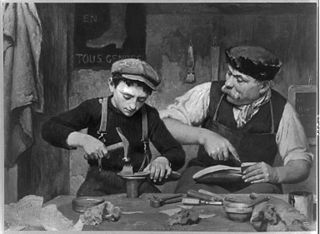
Apprenticeship is a system for training a new generation of practitioners of a trade or profession with on-the-job training and often some accompanying study. Apprenticeships may also enable practitioners to gain a license to practice in a regulated occupation. Most of their training is done while working for an employer who helps the apprentices learn their trade or profession, in exchange for their continued labor for an agreed period after they have achieved measurable competencies.

Camosun College is a public college located in Saanich, British Columbia, Canada. The college has two campuses, Lansdowne and Interurban, with a total full-time equivalent enrollment of 4,946 students in 2022/23. Camosun College also provides contract training for local business; research, innovation and prototyping services for industry; and trained co-op students for employers.

A postgraduate diploma is a postgraduate qualification at the level of a master's degree, awarded after a university degree, which supplements the original degree and awards them with a graduate diploma. The minimum requirement of completing a Bachelor's degree is necessary to start the Postgraduate course. The duration of a Postgraduate course can vary from 1 year to 2 years.

A vocational school, is a type of educational institution, which, depending on the country, may refer to either secondary or post-secondary education designed to provide vocational education or technical skills required to complete the tasks of a particular and specific job. In the case of secondary education, these schools differ from academic high schools which usually prepare students who aim to pursue tertiary education, rather than enter directly into the workforce. With regard to post-secondary education, vocational schools are traditionally distinguished from four-year colleges by their focus on job-specific training to students who are typically bound for one of the skilled trades, rather than providing academic training for students pursuing careers in a professional discipline. While many schools have largely adhered to this convention, the purely vocational focus of other trade schools began to shift in the 1990s "toward a broader preparation that develops the academic" as well as the technical skills of their students.
The National Institutes of Technology (NITs) are centrally funded technical institutes under the ownership of the Ministry of Education, Government of India. They are governed by the National Institutes of Technology, Science Education, and Research Act, 2007, which declared them institutions of national importance and laid down their powers, duties, and framework for governance. The act lists 32 NITs. Each NIT is autonomous and linked to the others through a common council known as the Council of NITSER, which oversees their administration. All NITs are funded by the Government of India.
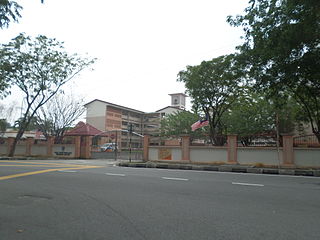
The Centre for Instructor and Advanced Skill Training is under the aegis of the Manpower Department, Ministry of Human Resources of Malaysia and has been operational since 1984. Its establishment was sponsored by the Government of Japan under ASEAN Human Resources Development.

Industrial training institutes (ITI) and industrial training centers (ITC) is a qualification and are post-secondary schools in India constituted under the Directorate General of Training (DGT), Ministry of Skill Development and Entrepreneurship, Union Government, to provide training in various trades.
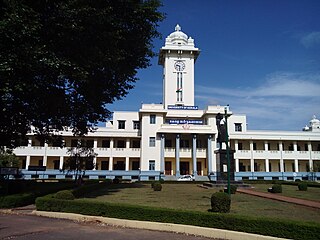
The importance and antiquity of education in Kerala are underscored by the state's ranking as among the most literate in the country. The educational transformation of Kerala was triggered by the efforts of both Church Mission Society missionaries like Jon Munro and clergy of Catholic church like Fr Kuriakose Elias Chavara and Fr Charles Lavigne and were the pioneers that promoted mass education in Kerala, in the early decades of the 19th century. The local dynastic precursors of modern-day Kerala, primarily the Travancore Royal Family, the Nair Service Society, Sree Narayana Dharma Paripalana Yogam, and Muslim Educational Society (MES), also made significant contributions to the progress on education in Kerala. Local schools were known by the general term kalaris, some of which taught martial arts, but other village schools run by Ezhuthachans were for imparting general education. Christian missionaries and British rule brought the modern school education system to Kerala. Ezhuthu palli was the name used in earlier times. The word was derived from the schools run by the Buddhist monasteries. For centuries, villages used to set up an ezhuthupally or ashan pallikoodam with one or two teachers. Students used to go this school from nearby areas and learn languages, literature, mathematics, grammar etc. After completing this, students may continue study about specific subjects such as ayurveda, astrology, accounting etc. Censuses during the 1800s showed that Travancore, Cochin, and Kannur areas have many such schools.

The Diploma in Engineering, Diploma in Technology, Diploma in Technical Education is a program focused on practical and skills-oriented training. It is a technical course that only covers the essentials when ranked with an undergraduate engineering degree. It aims to provide students with industry or job related basic engineering knowledge, scientific skills, computing and analysis, mathematical techniques, a sound knowledge of English to communicate in the field and the ability to apply problem-solving techniques.
Instrument mechanics in engineering are tradesmen who specialize in installing, troubleshooting, and repairing instrumentation, automation and control systems. The term "Instrument Mechanic" came about because it was a combination of light mechanical and specialised instrumentation skills. The term is still is used in certain industries; predominantly in industrial process control.
The Don Bosco Technical School Shillong is a high school established in 1932. It is operated by the Salesians of Don Bosco North East India Guwahati Region.

State Council for Technical Education & Vocational Training is located in the city of Bhubaneswar, Odisha, India. The board is managing the Diploma & ITI education in Orissa, which is affiliated to AICTE, New Delhi, recognized by Government of Odisha. According to SCTE & VT, there are almost 124 private and 35 state government diploma colleges in the Odisha state which include polytechnic, Diploma institutes & 637 ITI institutes, prevailing under this board, which produces skilled laborers & techno-entrepreneurial workforces for State SMEs industry.
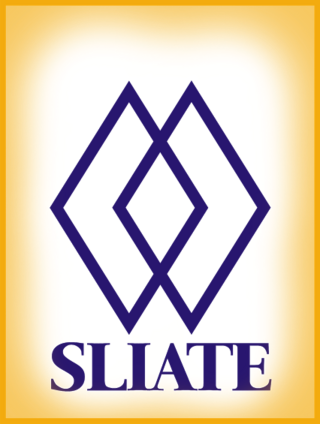
The Sri Lanka Institute of Advanced Technological Education is a statutory body in Sri Lanka coming under the purview of the Higher Education Ministry and offering Higher National Diploma courses. At present, it manages and supervises eighteen provincial Advanced Technological Institutes throughout the island. The institute is traditionally known for its education in the accountancy and engineering. As per the recommendations of the Committee appointed by Prof. Wiswa Waranapala, Deputy Minister of Higher Education in 1994, the Sri Lanka Institute of Advanced Technical Education (SLIATE) was formed in 1995, under the Sri Lanka Institute of Advanced Technical Education Act No. 29 of 1995. In 2001, the name of the institution was amended as Sri Lanka Institute of Advanced Technological Education (SLIATE).

Iohahi:io Akwesasne Education & Training Institute is an Aboriginal-owned and controlled post-secondary institution for the Mohawks of Akwesasne.

Ramakrishna Mission Shilpavidyala (RKMS) is a private Industrial Training Institute and HS Vocational. It has four I.T.I. trade courses - electrician, fitter, turner and welder - under Craftsman Training Scheme (C.T.S.) affiliated to National Council for Vocational Training (N.C.V.T), New Delhi and HS Vocational for the trade Electrical and Computer which is affiliated to W.B. State Council of Technical and Vocational Education and Skill Development . It was established in sector one 1921,sector two 1963 as a Government Sponsored Junior Technical School, during the birth centenary celebrations of Swami Vivekananda. Swamiji is the greatest and most remarkable philosopher sage and karma yogi one comes across in modern India, who sailed to the United States in 1893 to find means for the material development of the masses of India. He represented Hinduism at the Chicago Parliament of Religions. This institution has been nurtured with Swami Vivekananda's ideas to help build a bridge for the masses, especially in rural India, to connect to modern industry. Hundreds of youth who would otherwise have had no scope to go in for higher education have been trained by us in skills and are gainfully employed in various well-known industries. It is located in Belur Math, P.O. Belur Math, D.T. Howrah, Pin- 711202, Belur, West Bengal.
Institut Latihan Perindustrian Kuala Lumpur or its English name Industrial Training Institute of Kuala Lumpur, also known as ILPKL is a public vocational college situated in a 13.7 acre land in Kuchai Lama, suburb of Kuala Lumpur, Malaysia. Founded in 1964 under Jabatan Tenaga Manusia, JTM, ILPKL is one of the oldest institute of technology in Malaysia. It is one of 32 Institut Latihan Jabatan Tenaga Manusia, ILJTM. Today, ILPKL offers 12 courses. Currently under the direction of the 13th director, Abd Halim bin Ali Mohammed, ILPKL is able to accommodate 1100 students at one time.

The National Institute of Electronics and Information Technology (NIELIT) is an autonomous scientific society operating under the Ministry of Electronics and Information Technology, Government of India.

The Indian Institute of Infrastructure and Construction Kollam or IIIC-Kollam is a public institute of international standard situated at Chavara in Kollam, Kerala. The initiative has been undertaken by the Government of Kerala with the support of the Government of India. The academy is coming under the Kerala Academy for Skills Excellence (KASE) to support the skill development programmes for construction related occupations
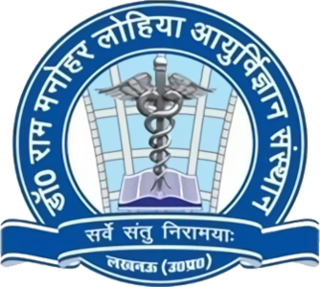
The Dr. Ram Manohar Lohia Institute of Medical Sciences, is a medical institute with state university status located in Lucknow, Uttar Pradesh, India. The institute offers MBBS, Bachelor of Science in Nursing BSN, DM, MCh, MD and Ph.D. degrees. It was established in 2006 and was affiliated with King George's Medical University till 2018. On 12 September 2018, it was notified as an state university with degree-granting status and privileges.
Rajiv Gandhi Academy for Aviation Technology (RAGAAT) is a state-owned pilot training institute run by the Government of Kerala, India. It is situated at the Thiruvananthapuram International Airport. Originally founded as Kerala Flying Club, a private flying club in 1959 by G. V. Raja, it was bought by the state government in 1981. In 2006, the institute was approved by the Directorate General of Civil Aviation (DGCA) as a Flying Training Organisation (FTO). As of 2022, RAGAAT is the only pilot training institute in Kerala and one among the 34 FTOs in India. The institute has both single and twin-engine aircraft.
References
- ↑ "Home | Advanced Training Institute, Calicut". www.aticalicut.org. Archived from the original on 1 March 2018. Retrieved 2 March 2018.
- ↑ "Archived copy" (PDF). Archived from the original (PDF) on 2 March 2018. Retrieved 2 March 2018.
{{cite web}}: CS1 maint: archived copy as title (link) - ↑ "Advanced Training Institutes (ATIs) [Formerly MITIs]:: Directorate General of Training (DGT)". dget.nic.in. Retrieved 2 March 2018.
- ↑ "Govt to set up 12 advanced training institutes for vocational instructors in first phase - Times of India". The Times of India. Retrieved 2 March 2018.